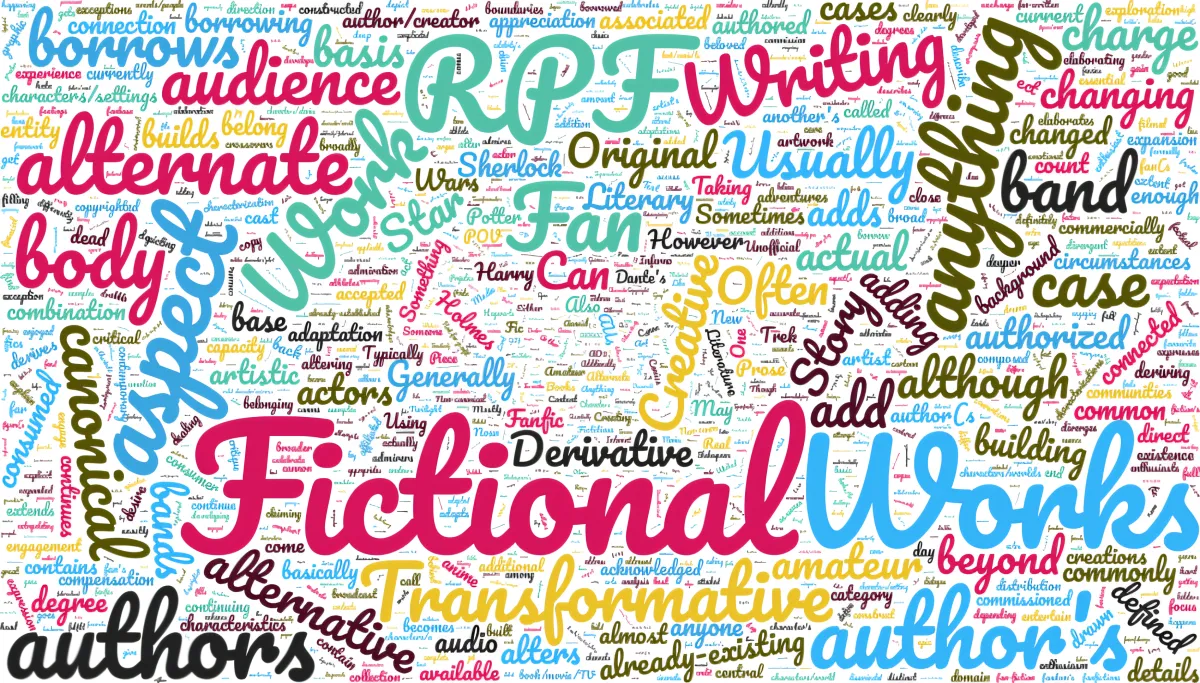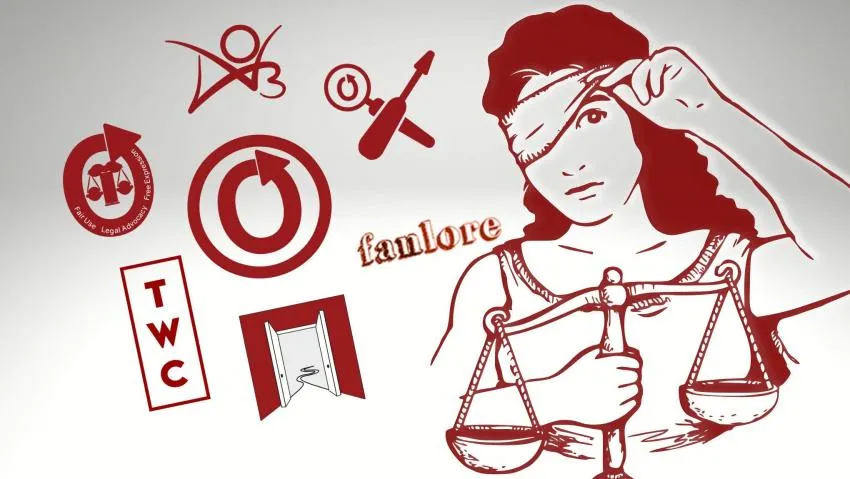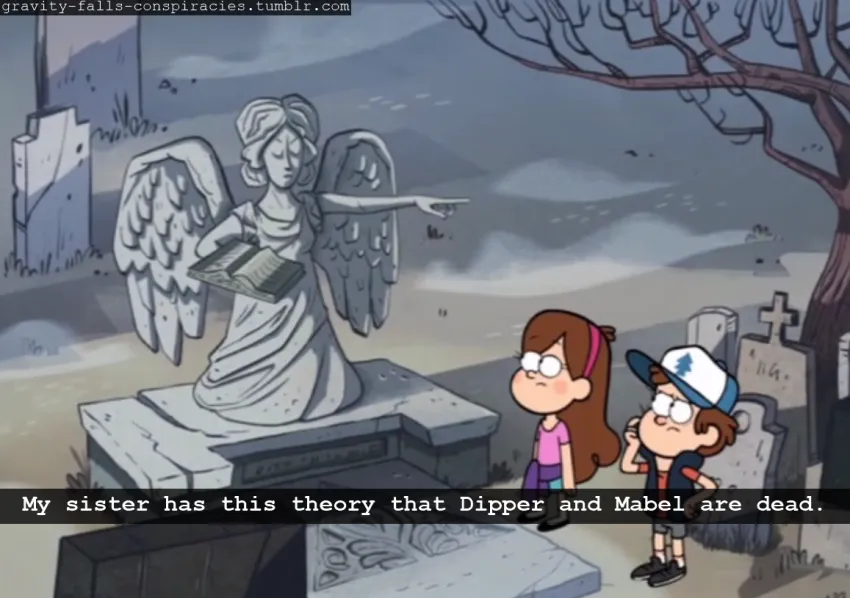Why Does Fanfiction Matter?
'What the hell is fanfiction' is a question that pops up now and then in discussions. While its origins can arguably be stated as going back as far as the 13th century with Dante Alighieri's depiction of his favorite philosopher and writer personally guiding him through the Biblical world, wrought with run-ins with a variety of other writers and thinkers of and before Dante's era, many people associate fanfiction's real coming out into society with the rise in Star Trek content during the sixties and seventies.

It was the first frontier into the modern relationship that fanfiction has with both the writers and consumers of such works. Pictured above is Spockanalia, a zine printed and distributed containing content focusing majorly on the Leonard Nimoy character Spock. Before the internet, these distributed zines were the only way to receive contact with the world of fanfiction--and once the internet did come, the sensation that had once existed only in printed zines distributed on a small scale exploded into a massive online phenomenon.
It is a complex medium that spans generations. But, let's start with the core question...
What is fanfiction?

Fanfiction is the act of writing fictional works of varying lengths using locations, plots, and characters from pre-existing properties. While these works can focus on a variety of genres, the most popular genre in fanfiction is romance, which relies on the reader writing romances based on pre-existing character relationships. This is referred to as shipping and can be applied to both relationships that actually occur within the original narrative, as well as relationships that the reader interprets regardless of whether or not the characters actually are romantic in the source material.
Functionally, fanfiction is the source of one thing: thinking about the content you consume. Fanfiction has become a way to interact with your media in the same way that drawing a picture of a character you like is. It can be the product of a fleeting thought manifest into a short story, or a heavily parsed-out piece surrounding the lore of the show in question.
Is fanfiction legal?

This is a heavy question because there are indeed some legal issues regarding fanfiction. The aforementioned zines, for example, were indeed sold for money. Some creators such as Gene Roddenberry actively endorsed the material. Others such as George Lucas sought to control the distributions of zines and for a decade it was strictly forbidden by LucasArts to produce and distribute zines containing homosexual material. Anne Rice to this day still forbids the creation of fanfiction based on her books, and major fanfiction sites respect her wishes by refusing to host such works.
On the most part, though, fanfiction is a legal grey zone that a grand majority of creators do not attempt to interrupt for two reasons. The first is that by the time the 2000s rolled around, the majority of fanfiction was hosted online and zines had become more of a curiosity than a constant distribution. As a result, fanfiction has not drawn profit in a very long time, and it is not considered worth the effort of a legal team to try and deal with.
The second reason is, positive fanbase or negative fanbase, fanfiction essentially is free advertisement for both current and older media. It keeps the attention mill rolling forward for movies or television shows that would otherwise be left in limbo between installments and during hiatus periods. Fanfiction often reflects the theory of the plot direction and it often helps fuel curiosity during a time when there is no official content to keep the media engine running. For example, during an extended hiatus, the Disney Channel show Gravity Falls became infamous for its theorization that often extended into fanfiction.

So, while it is not explicitly legal or illegal, fanfiction is often overlooked by companies in terms of copyright because it acts as a promotion for their material. FREE promotion. It has also been argued that fanfiction, as a whole, could be considered protected under parody and satire clauses in copyright law. Either way, it is unlikely to see anyone going to court over fanfiction.
So why does fanfiction matter?

Whether you start out writing fanfiction or not, all writers have some sort of inspiration that they start from. What makes fanfiction matter is ultimately the role it has in the life of a young writer. Ideally, the young writer takes up fanfiction as a hobby and uses it to refine said talent. The more they write fanfiction, the more practice they will get at writing itself.
Repetition is one of the most tried and true ways of learning, and many fanfiction writers will be very prolific in their early years. As young writers practices more and more, they refine their style and become tangibly more aware of the failings in their own writing. This is of course best couple with actual education in essay writing and storytelling as provided by the school system around them, but, fanfiction still provides the most important piece of the puzzle:
Practice.
Fanfiction can also be seen as an endorsement of thought. Instead of simply consuming media, the writer is engaging in it. Instead of simply reading or watching, the writer is interpreting. These are valuable skills that can serve people well, especially in higher education. In a sense, starting to write fanfiction at a young age can help people become more aware of language and story structure far before the school system even is teaching it to them.
Fanfiction is an odd little world that many can rightfully call self-indulgent. However, despite that potential self-indulgence, it remains a piece of the written word that can help people grow if used right. Find your favorite show. Your favorite book. Your favorite movie. Find it, and take a swing at writing fanfiction, at the very least so that you can think critically about what you are consuming and practice writing.
Opinions and Perspectives
I appreciate how fanfiction lets us explore different genres with familiar characters.
Its fascinating how fanfiction communities create their own terminology and tropes.
Its interesting how different cultures view fanfiction. Japan seems much more accepting of it.
The community aspect is so important. Getting feedback helped me improve so much.
I love how fanfiction lets us explore minor characters who deserve more attention.
Those early Star Trek zines must be collectors items now. Such an important part of fan history.
The educational benefits are often overlooked. Its not just fun, it builds real skills.
Writing fanfiction helped me process complicated plot points in shows I watched.
I appreciate creators who embrace fan works. It shows they understand their audience.
Shipping wars can get intense but they show how invested people get in these characters.
The point about interpretation versus consumption is crucial. Active engagement versus passive watching.
Its amazing how many professional writers started with fanfiction. Shows its not just a hobby.
Star Trek fans really were pioneers. They created the template for modern fandom.
Practice is key in any creative field. Fanfiction gives us a safe space to experiment.
Never thought about how fanfiction keeps interest alive between seasons. Makes total marketing sense.
The mention of LucasArts controlling content is fascinating. Shows how much attitudes have changed.
I used to be embarrassed about writing fanfiction but this article makes me see it differently.
Writing fanfiction taught me more about pacing and dialogue than years of English classes.
Its wild how something that started with small printed zines became this huge online phenomenon.
You must not be reading the right stuff then. There are some incredibly analytical writers in fanfiction communities.
Not sure I agree about it helping critical thinking. A lot of fanfiction I see just repeats the same tropes.
The parallel between fan art and fanfiction is really interesting. Both let us interpret media in our own way.
Reading this made me nostalgic for my old fandom days. Think I might start writing again.
Some of the best character analysis I've read has been in fanfiction author notes. People really dig deep.
The legal grey area is fascinating. Parody protection makes sense but the lines get blurry fast.
Fanfiction helped me find my voice as a writer. Started with copying styles but eventually developed my own.
The part about self indulgence hits home. Sometimes you just want to write something fun without worrying about being original.
Im still amazed by how much the internet changed everything. From small zine circles to massive online archives.
Writing fanfiction helped me understand story structure way before we covered it in school. It was like a head start on creative writing.
Gene Roddenberry was truly ahead of his time in supporting fan works. It probably helped build such a dedicated fanbase.
I love how fanfiction lets us explore what if scenarios. Like what if this character made a different choice? The possibilities are endless.
Anyone remember the drama when 50 Shades started as Twilight fanfiction? That really brought attention to the whole genre.
The article barely touches on how fanfiction builds communities. Some of my closest friends I met through sharing stories.
I wonder what Dante would think about being considered an early fanfiction writer. Mind blown.
Learning through repetition makes so much sense. Writing fanfic let me practice different styles without the pressure of creating everything from scratch.
Sometimes I think fanfiction writers understand the characters better than the original creators do.
The Gravity Falls example really shows how fan theories and fanfiction can keep interest alive between seasons.
My writing journey started with Harry Potter fanfiction in middle school. Now I publish original novels. Everyone starts somewhere.
The comparison to fan art is spot on. Both are creative ways to engage with media we love.
I appreciate how the article acknowledges both the benefits and potential criticisms of fanfiction without being dismissive.
The practice aspect is so important. My early fanfics were awful but each one got a little better. Its like training wheels for writing.
As a teacher, I see how fanfiction motivates students to write. They get excited about storytelling when it involves characters they love.
Interesting point about shipping. I think it shows how readers can find deeper meanings and connections that even the original authors might not have intended.
The part about critical thinking skills really resonates with me. Writing fanfic taught me to analyze plot structure and character motivation in ways I never considered before.
Anyone else start with terrible Mary Sue self-insert stories? Looking back at my first attempts makes me cringe but we all start somewhere!
The legal aspects are so interesting. I remember when Anne Rice was super aggressive about stopping fanfic of her work. Makes me wonder how many other authors feel the same way.
I never thought about fanfiction as free advertising but it makes total sense why companies mostly leave it alone now. Smart business move.
The Star Trek fanzine culture was amazing. My mom used to tell me stories about trading zines at conventions in the 70s. Such a different world before the internet.
Actually, I disagree. Working with established characters helps you understand character development better. You learn what makes characters tick before creating your own.
While I understand the appeal, I worry that fanfiction keeps writers from developing their own original characters and worlds. Shouldn't we encourage more originality?
This really opened my eyes about the historical context. I had no idea fanfiction went back as far as Dante! That's fascinating stuff.
I started writing fanfiction as a teenager and it honestly helped me develop my writing skills more than any English class ever did. The freedom to explore existing characters while developing my own style was invaluable.
